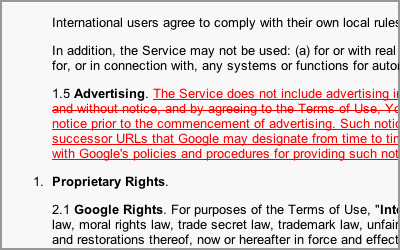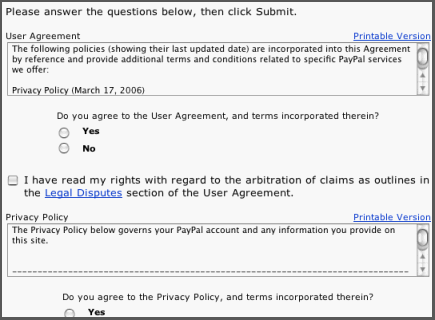On Good Terms
You know, I’m much less of a Google fanboy than I once was (for causes, see also: Chinese Censorship, Google’s Role in) but I still find plenty to admire in the company.
Take the recent revision to the terms of service for their Google Maps API. In announcing the change, Google provided a helpful “diff” page in which they highlighted the changes in red:

This customer-friendly move shows respect for our time in a way that far, far too few companies bother to do.
For example, contrast that approach to the one taken by PayPal, which by coincidence also recently updated its terms.
PayPal requires the user to signify his/her agreement to the new terms rather than simply changing them unilaterally, which I applaud. But my admiration ends there. Here’s a sample from the screen in which PayPal requests acquiesence to the modified agreement (scaled to 80%):

See that first 5-line textbox? It contains over 7,100 words, including a line mentioning that the privacy policy (among other documents) was updated in March 2006. They break out the privacy policy in the lower box, which weighs in at nearly five thousand words. Of these, how many are changed? Not a clue.
This sort of customer-hostile behavior lends a lot of credence to the perspective that PayPal doesn’t really want its customers to actually read the revised terms. Whether this is due to an attempt to slip in new provisions or just plain apathy about usability is less clear.
I know it’s an open secret that nobody reads the fine print before they click “I Agree”, but it would be nice if more companies followed Google’s example here.
